Who Unicus Alliance Helps
Empowering Diverse Nonprofits for Global Impact.
Unicus Alliance, a Michigan-based 501(c)(3), partners with nonprofits worldwide to amplify their missions through innovative marketing, branding, and digital solutions. Powered by Unicus Marketing’s expertise since 1993, we support organizations at every stage—startups, growing entities, and established groups—by providing high-impact services at reduced or no cost. Explore the diverse nonprofit sectors we help and discover how we can help your organization achieve sustainable growth and transformative community impact.
Nonprofit Sectors We Help
From veterans’ support to marine conservation, Unicus Alliance provides tailored creative services to nonprofits across a wide range of sectors. Our URGENCY program ensures rapid, high-quality support for time-sensitive needs, helping organizations overcome challenges and amplify their reach.
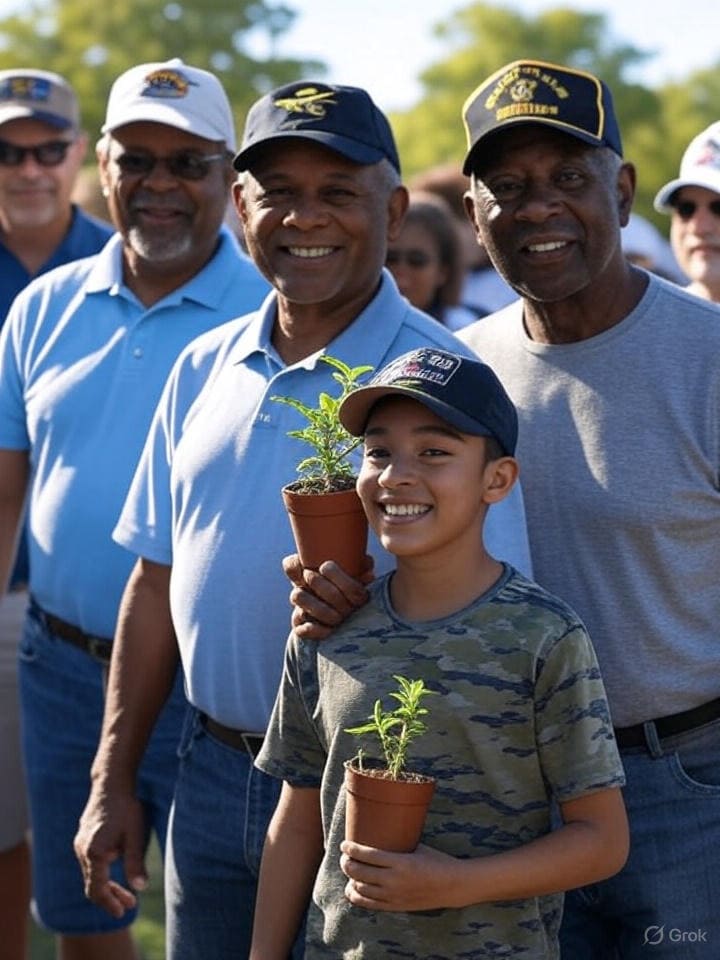 These nonprofits are dedicated to assisting military veterans and their families by providing comprehensive services that address the unique challenges faced after service. This includes access to physical and mental healthcare, such as treatment for PTSD, traumatic brain injuries, and chronic pain; employment and vocational training programs to facilitate transition to civilian jobs; housing assistance to prevent homelessness and ensure stable living conditions; financial aid for emergencies or education; and community-building initiatives like peer support groups, recreational activities, and advocacy for policy changes to improve veterans’ benefits and rights.
These nonprofits are dedicated to assisting military veterans and their families by providing comprehensive services that address the unique challenges faced after service. This includes access to physical and mental healthcare, such as treatment for PTSD, traumatic brain injuries, and chronic pain; employment and vocational training programs to facilitate transition to civilian jobs; housing assistance to prevent homelessness and ensure stable living conditions; financial aid for emergencies or education; and community-building initiatives like peer support groups, recreational activities, and advocacy for policy changes to improve veterans’ benefits and rights.
Donate Now
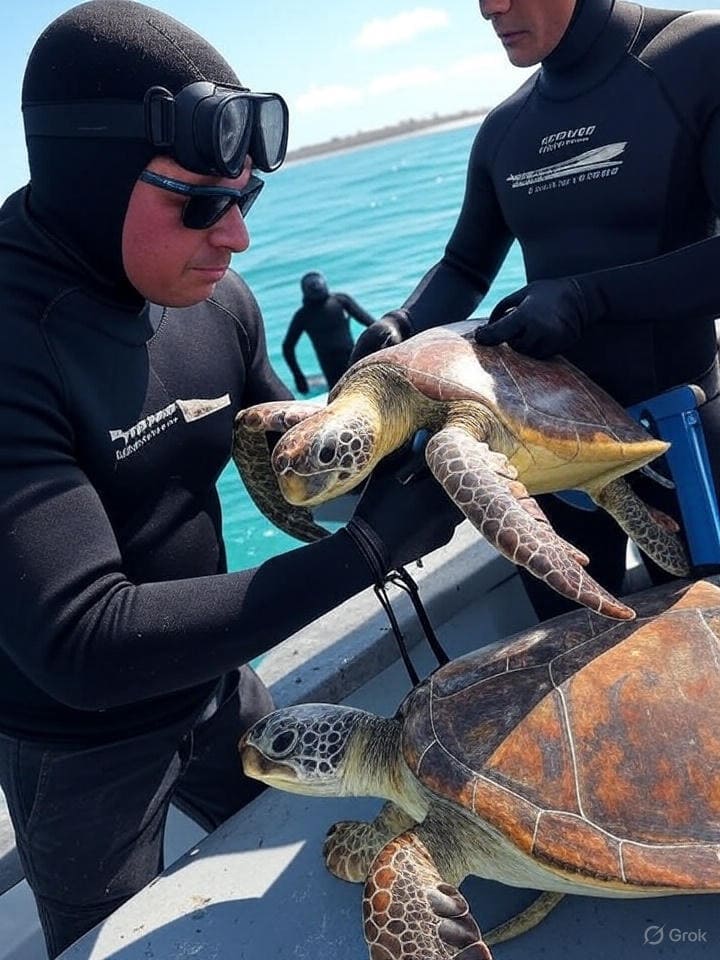 Nonprofits dedicated to protecting oceans, marine ecosystems, and aquatic species through efforts like coral reef restoration, overfishing prevention, marine pollution reduction (especially plastics and oil spills), and advocacy for sustainable fishing practices and marine protected areas. They conduct research on ocean health, biodiversity, and climate change impacts; engage in cleanup operations, habitat rehabilitation, and species protection for endangered marine life like whales, turtles, and sharks; educate the public on responsible tourism and consumption; and push for international policies on ocean governance, reducing carbon emissions, and banning harmful practices to preserve the blue economy and planetary health.
Nonprofits dedicated to protecting oceans, marine ecosystems, and aquatic species through efforts like coral reef restoration, overfishing prevention, marine pollution reduction (especially plastics and oil spills), and advocacy for sustainable fishing practices and marine protected areas. They conduct research on ocean health, biodiversity, and climate change impacts; engage in cleanup operations, habitat rehabilitation, and species protection for endangered marine life like whales, turtles, and sharks; educate the public on responsible tourism and consumption; and push for international policies on ocean governance, reducing carbon emissions, and banning harmful practices to preserve the blue economy and planetary health.
Donate Now
 Organizations in this category focus on combating all forms of human trafficking, including sex trafficking, labor exploitation, and organ trafficking, through a multi-faceted approach. They engage in prevention efforts like public awareness campaigns and education in vulnerable communities; direct intervention such as rescue operations in collaboration with law enforcement; survivor support including safe housing, medical care, counseling, legal aid, and vocational training for reintegration; and advocacy for stronger laws, international cooperation, and corporate accountability to disrupt trafficking networks and protect at-risk populations like migrants, children, and impoverished individuals.
Organizations in this category focus on combating all forms of human trafficking, including sex trafficking, labor exploitation, and organ trafficking, through a multi-faceted approach. They engage in prevention efforts like public awareness campaigns and education in vulnerable communities; direct intervention such as rescue operations in collaboration with law enforcement; survivor support including safe housing, medical care, counseling, legal aid, and vocational training for reintegration; and advocacy for stronger laws, international cooperation, and corporate accountability to disrupt trafficking networks and protect at-risk populations like migrants, children, and impoverished individuals.
Donate Now
 Nonprofits addressing homelessness work to provide immediate relief and long-term solutions for individuals and families without stable shelter. This involves operating emergency shelters, transitional housing, and permanent supportive housing; offering wraparound services such as case management, job placement, financial literacy training, and access to healthcare and mental health support; advocating for affordable housing policies, rent control, and zoning reforms; and conducting outreach programs to connect with street populations, prevent evictions, and address root causes like poverty, domestic violence, and unemployment.
Nonprofits addressing homelessness work to provide immediate relief and long-term solutions for individuals and families without stable shelter. This involves operating emergency shelters, transitional housing, and permanent supportive housing; offering wraparound services such as case management, job placement, financial literacy training, and access to healthcare and mental health support; advocating for affordable housing policies, rent control, and zoning reforms; and conducting outreach programs to connect with street populations, prevent evictions, and address root causes like poverty, domestic violence, and unemployment.
Donate Now
 These groups aim to break the cycle of poverty and ensure food security for low-income communities worldwide. Activities include distributing food through pantries, meal programs, and school feeding initiatives; providing economic empowerment via microloans, job skills training, entrepreneurship programs, and access to education; implementing community development projects like clean water access and sustainable agriculture; and lobbying for systemic changes such as fair wage policies, social safety nets, and equitable resource distribution to reduce inequality and foster self-sufficiency.
These groups aim to break the cycle of poverty and ensure food security for low-income communities worldwide. Activities include distributing food through pantries, meal programs, and school feeding initiatives; providing economic empowerment via microloans, job skills training, entrepreneurship programs, and access to education; implementing community development projects like clean water access and sustainable agriculture; and lobbying for systemic changes such as fair wage policies, social safety nets, and equitable resource distribution to reduce inequality and foster self-sufficiency.
Donate Now
 Focused on expanding access to quality education, these nonprofits target underserved populations including children in low-income areas, refugees, and adults seeking second chances. They provide scholarships, school supplies, tutoring, and after-school programs; build or renovate schools in remote or impoverished regions; promote literacy through adult education classes, book distribution, and digital learning tools; advocate for inclusive policies like gender equality in education and teacher training; and measure impact through initiatives that improve graduation rates, workforce readiness, and lifelong learning opportunities.
Focused on expanding access to quality education, these nonprofits target underserved populations including children in low-income areas, refugees, and adults seeking second chances. They provide scholarships, school supplies, tutoring, and after-school programs; build or renovate schools in remote or impoverished regions; promote literacy through adult education classes, book distribution, and digital learning tools; advocate for inclusive policies like gender equality in education and teacher training; and measure impact through initiatives that improve graduation rates, workforce readiness, and lifelong learning opportunities.
Donate Now
 Nonprofits in this sector work to improve public health outcomes by funding medical research, providing direct care, and promoting preventive measures. This includes supporting research for diseases like cancer, HIV/AIDS, and rare disorders; offering free or low-cost clinics, mobile health units, and telemedicine in underserved areas; distributing medications, vaccines, and medical equipment; educating communities on hygiene, nutrition, and disease prevention; and advocating for healthcare policy reforms to ensure equitable access, reduce disparities, and respond to global health crises like pandemics.
Nonprofits in this sector work to improve public health outcomes by funding medical research, providing direct care, and promoting preventive measures. This includes supporting research for diseases like cancer, HIV/AIDS, and rare disorders; offering free or low-cost clinics, mobile health units, and telemedicine in underserved areas; distributing medications, vaccines, and medical equipment; educating communities on hygiene, nutrition, and disease prevention; and advocating for healthcare policy reforms to ensure equitable access, reduce disparities, and respond to global health crises like pandemics.
Donate Now
 These organizations prioritize mental well-being by raising awareness, reducing stigma, and providing accessible support services. Efforts include offering counseling, therapy sessions, crisis hotlines, and peer support groups; developing programs for specific groups like youth, workplace employees, or trauma survivors; promoting wellness through mindfulness, exercise, and stress management workshops; funding research on mental health conditions such as anxiety, depression, and bipolar disorder; and pushing for policy changes to integrate mental health into primary care, increase funding for services, and ensure insurance coverage parity.
These organizations prioritize mental well-being by raising awareness, reducing stigma, and providing accessible support services. Efforts include offering counseling, therapy sessions, crisis hotlines, and peer support groups; developing programs for specific groups like youth, workplace employees, or trauma survivors; promoting wellness through mindfulness, exercise, and stress management workshops; funding research on mental health conditions such as anxiety, depression, and bipolar disorder; and pushing for policy changes to integrate mental health into primary care, increase funding for services, and ensure insurance coverage parity.
Donate Now
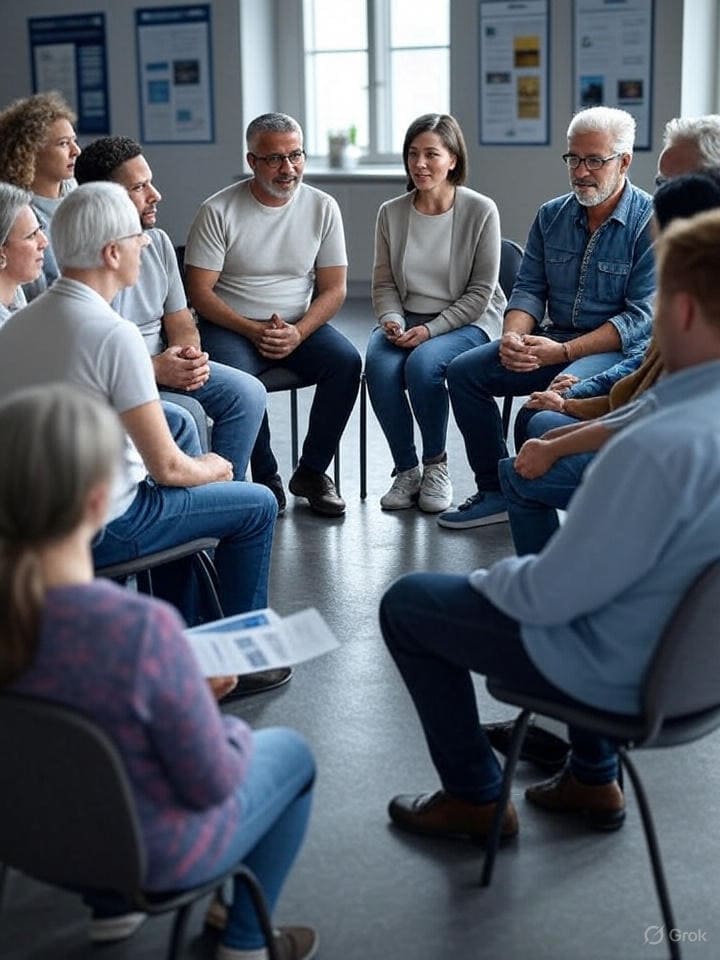 Dedicated to helping individuals overcome addictions to drugs, alcohol, gambling, or other substances/behaviors, these nonprofits provide comprehensive recovery programs. This encompasses detoxification services, inpatient and outpatient rehabilitation, sober living homes, and relapse prevention strategies; counseling and therapy for underlying issues like trauma or co-occurring mental health disorders; community education on prevention, harm reduction (e.g., needle exchanges), and family support; and advocacy for evidence-based policies, decriminalization of addiction, and increased access to treatments like medication-assisted therapy.
Dedicated to helping individuals overcome addictions to drugs, alcohol, gambling, or other substances/behaviors, these nonprofits provide comprehensive recovery programs. This encompasses detoxification services, inpatient and outpatient rehabilitation, sober living homes, and relapse prevention strategies; counseling and therapy for underlying issues like trauma or co-occurring mental health disorders; community education on prevention, harm reduction (e.g., needle exchanges), and family support; and advocacy for evidence-based policies, decriminalization of addiction, and increased access to treatments like medication-assisted therapy.
Donate Now
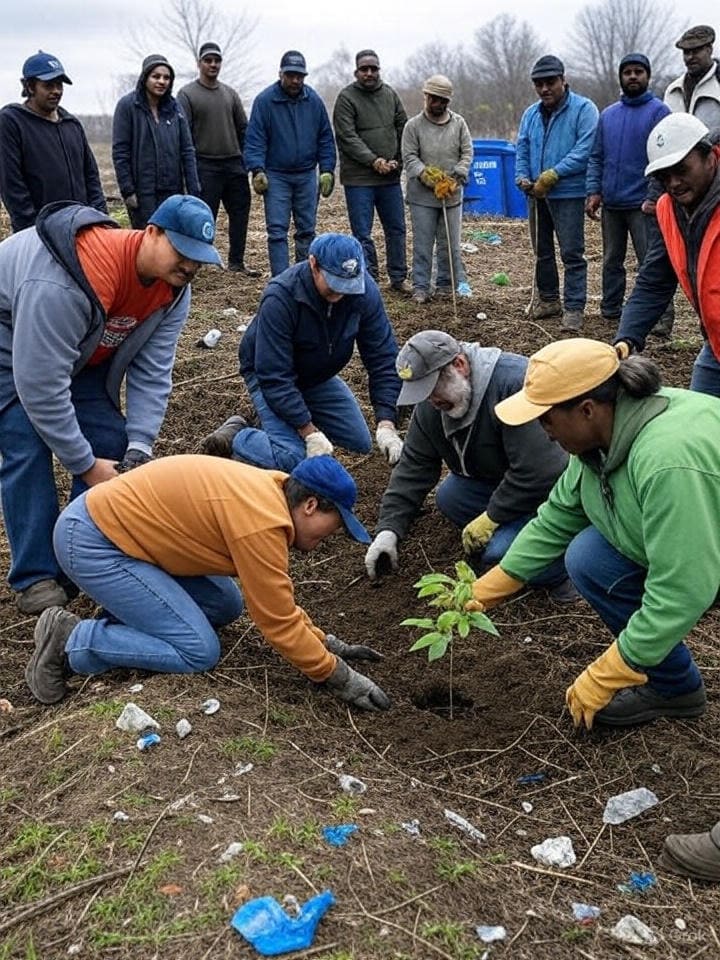 Nonprofits here protect natural ecosystems and biodiversity through science-based initiatives and advocacy. Activities include habitat restoration projects like reforestation, wetland preservation, and invasive species removal; monitoring and researching environmental changes such as climate impacts and pollution levels; promoting sustainable practices in agriculture, energy, and urban planning; educating the public on conservation issues and encouraging eco-friendly behaviors; and lobbying for environmental laws, protected areas, and international agreements to combat deforestation, species extinction, and global warming.
Nonprofits here protect natural ecosystems and biodiversity through science-based initiatives and advocacy. Activities include habitat restoration projects like reforestation, wetland preservation, and invasive species removal; monitoring and researching environmental changes such as climate impacts and pollution levels; promoting sustainable practices in agriculture, energy, and urban planning; educating the public on conservation issues and encouraging eco-friendly behaviors; and lobbying for environmental laws, protected areas, and international agreements to combat deforestation, species extinction, and global warming.
Donate Now
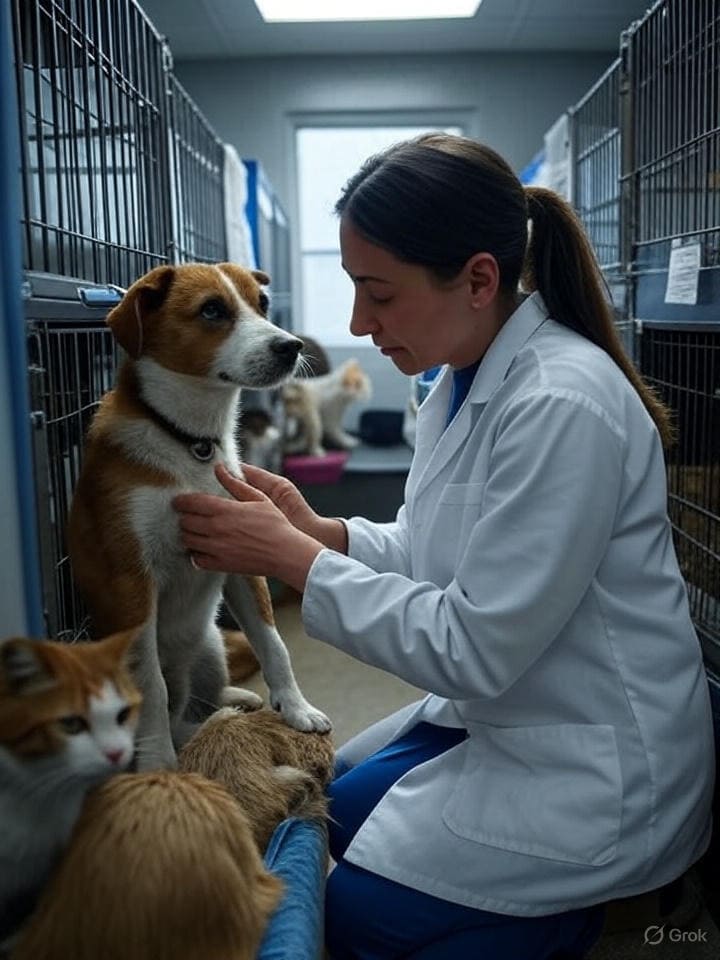 These groups advocate for the humane treatment of animals, focusing on rescue, rehabilitation, and ethical standards. They operate shelters for abandoned or abused animals, facilitate adoptions, and provide veterinary care; campaign against animal cruelty in industries like factory farming, entertainment (e.g., circuses), and testing; promote alternatives such as plant-based diets and cruelty-free products; educate on responsible pet ownership and wildlife conservation; and push for legal reforms including stronger animal protection laws, bans on wildlife trade, and recognition of animal sentience.
These groups advocate for the humane treatment of animals, focusing on rescue, rehabilitation, and ethical standards. They operate shelters for abandoned or abused animals, facilitate adoptions, and provide veterinary care; campaign against animal cruelty in industries like factory farming, entertainment (e.g., circuses), and testing; promote alternatives such as plant-based diets and cruelty-free products; educate on responsible pet ownership and wildlife conservation; and push for legal reforms including stronger animal protection laws, bans on wildlife trade, and recognition of animal sentience.
Donate Now
 Responding to natural disasters, conflicts, and humanitarian crises, these nonprofits deliver immediate and sustained assistance. This includes providing emergency supplies like food, water, shelter, and medical aid; coordinating search-and-rescue operations and evacuation efforts; supporting long-term recovery through rebuilding infrastructure, livelihoods, and communities; addressing needs of vulnerable groups like refugees and displaced persons; and building resilience via disaster preparedness training, early warning systems, and climate adaptation programs while advocating for global aid equity.
Responding to natural disasters, conflicts, and humanitarian crises, these nonprofits deliver immediate and sustained assistance. This includes providing emergency supplies like food, water, shelter, and medical aid; coordinating search-and-rescue operations and evacuation efforts; supporting long-term recovery through rebuilding infrastructure, livelihoods, and communities; addressing needs of vulnerable groups like refugees and displaced persons; and building resilience via disaster preparedness training, early warning systems, and climate adaptation programs while advocating for global aid equity.
Donate Now
 Committed to upholding fundamental rights and promoting equality, these organizations tackle systemic injustices across societies. They monitor and document abuses such as discrimination, torture, and censorship; provide legal aid, advocacy, and protection for activists and victims; campaign for reforms in areas like criminal justice, voting rights, and labor standards; foster inclusivity for marginalized groups including racial minorities, indigenous peoples, and immigrants; and engage in international efforts to enforce human rights treaties and hold governments accountable.
Committed to upholding fundamental rights and promoting equality, these organizations tackle systemic injustices across societies. They monitor and document abuses such as discrimination, torture, and censorship; provide legal aid, advocacy, and protection for activists and victims; campaign for reforms in areas like criminal justice, voting rights, and labor standards; foster inclusivity for marginalized groups including racial minorities, indigenous peoples, and immigrants; and engage in international efforts to enforce human rights treaties and hold governments accountable.
Donate Now
 These nonprofits advance gender equality by supporting women’s autonomy, safety, and opportunities. Initiatives include preventing gender-based violence through shelters, hotlines, and legal support; promoting reproductive health rights, family planning, and maternal care; empowering women economically via education, skills training, and access to credit; advocating for policy changes like equal pay, anti-discrimination laws, and political representation; and addressing intersectional issues affecting women of color, LGBTQ+ women, and those in conflict zones.
These nonprofits advance gender equality by supporting women’s autonomy, safety, and opportunities. Initiatives include preventing gender-based violence through shelters, hotlines, and legal support; promoting reproductive health rights, family planning, and maternal care; empowering women economically via education, skills training, and access to credit; advocating for policy changes like equal pay, anti-discrimination laws, and political representation; and addressing intersectional issues affecting women of color, LGBTQ+ women, and those in conflict zones.
Donate Now
 Focused on nurturing the next generation, these groups protect children’s rights and foster their growth. They provide child protection services against abuse, neglect, and exploitation; offer educational enrichment, mentoring, and extracurricular activities; support foster care, adoption, and family reunification programs; advocate for policies on child labor, education access, and juvenile justice reform; and address global issues like child marriage, trafficking, and poverty through international aid and awareness campaigns.
Focused on nurturing the next generation, these groups protect children’s rights and foster their growth. They provide child protection services against abuse, neglect, and exploitation; offer educational enrichment, mentoring, and extracurricular activities; support foster care, adoption, and family reunification programs; advocate for policies on child labor, education access, and juvenile justice reform; and address global issues like child marriage, trafficking, and poverty through international aid and awareness campaigns.
Donate Now
 Nonprofits serving seniors aim to enhance quality of life in aging populations by addressing isolation, health, and independence. Services include home-based care, assisted living facilities, and transportation; companionship programs, social activities, and dementia support; health initiatives like fall prevention, nutrition counseling, and chronic disease management; financial assistance for medications and housing; and advocacy for elder rights, including abuse prevention, pension reforms, and age-friendly community policies.
Nonprofits serving seniors aim to enhance quality of life in aging populations by addressing isolation, health, and independence. Services include home-based care, assisted living facilities, and transportation; companionship programs, social activities, and dementia support; health initiatives like fall prevention, nutrition counseling, and chronic disease management; financial assistance for medications and housing; and advocacy for elder rights, including abuse prevention, pension reforms, and age-friendly community policies.
Donate Now
 These organizations empower individuals with physical, intellectual, sensory, or developmental disabilities to live independently and participate fully in society. They provide adaptive equipment, accessibility modifications, and assistive technology; offer education, vocational training, and employment placement; deliver therapy, rehabilitation, and support groups; advocate for inclusive policies like the Americans with Disabilities Act enforcement, barrier-free environments, and anti-discrimination laws; and promote awareness to reduce stigma and foster inclusion.
These organizations empower individuals with physical, intellectual, sensory, or developmental disabilities to live independently and participate fully in society. They provide adaptive equipment, accessibility modifications, and assistive technology; offer education, vocational training, and employment placement; deliver therapy, rehabilitation, and support groups; advocate for inclusive policies like the Americans with Disabilities Act enforcement, barrier-free environments, and anti-discrimination laws; and promote awareness to reduce stigma and foster inclusion.
Donate Now
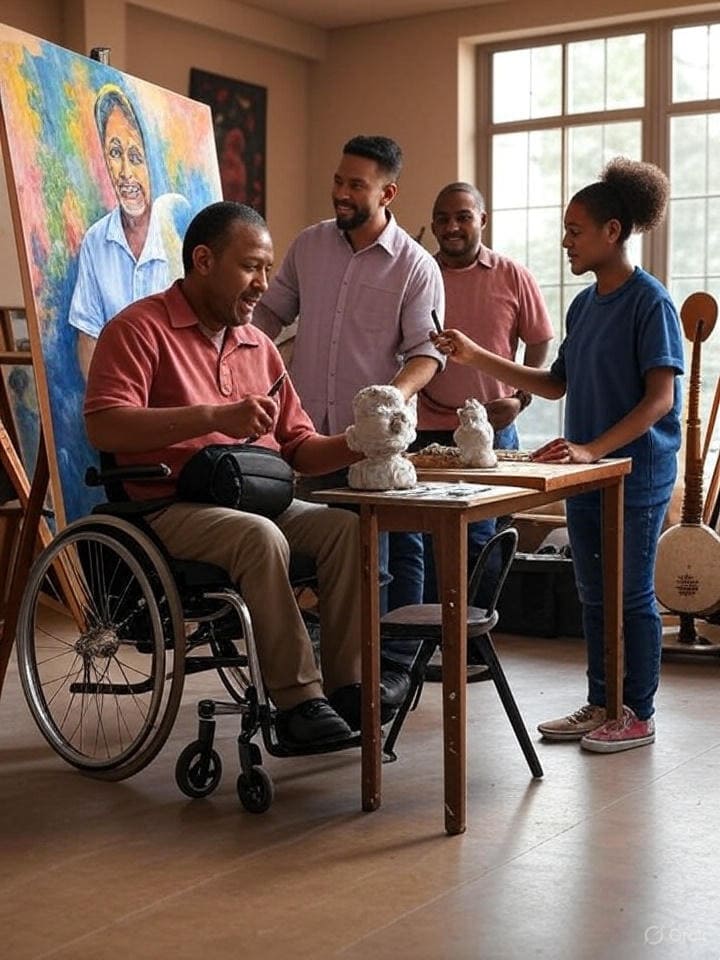 Promoting creativity and cultural preservation, these nonprofits enrich communities through artistic expression and heritage. They fund museums, theaters, and public art installations; offer arts education programs in schools and communities; support artists with grants, residencies, and exhibitions; preserve cultural traditions, languages, and historical sites; and advocate for arts funding, cultural policy, and accessibility to ensure diverse voices are represented and arts contribute to social cohesion and economic development.
Promoting creativity and cultural preservation, these nonprofits enrich communities through artistic expression and heritage. They fund museums, theaters, and public art installations; offer arts education programs in schools and communities; support artists with grants, residencies, and exhibitions; preserve cultural traditions, languages, and historical sites; and advocate for arts funding, cultural policy, and accessibility to ensure diverse voices are represented and arts contribute to social cohesion and economic development.
Donate Now
 These groups advance knowledge and technology by funding groundbreaking research across disciplines. They support studies in fields like physics, biology, engineering, and space exploration; provide grants for scientists, labs, and equipment; foster innovation through incubators, hackathons, and STEM education; collaborate on global challenges like renewable energy and disease cures; and advocate for science policy, open access to data, and ethical standards to drive progress and public understanding.
These groups advance knowledge and technology by funding groundbreaking research across disciplines. They support studies in fields like physics, biology, engineering, and space exploration; provide grants for scientists, labs, and equipment; foster innovation through incubators, hackathons, and STEM education; collaborate on global challenges like renewable energy and disease cures; and advocate for science policy, open access to data, and ethical standards to drive progress and public understanding.
Donate Now
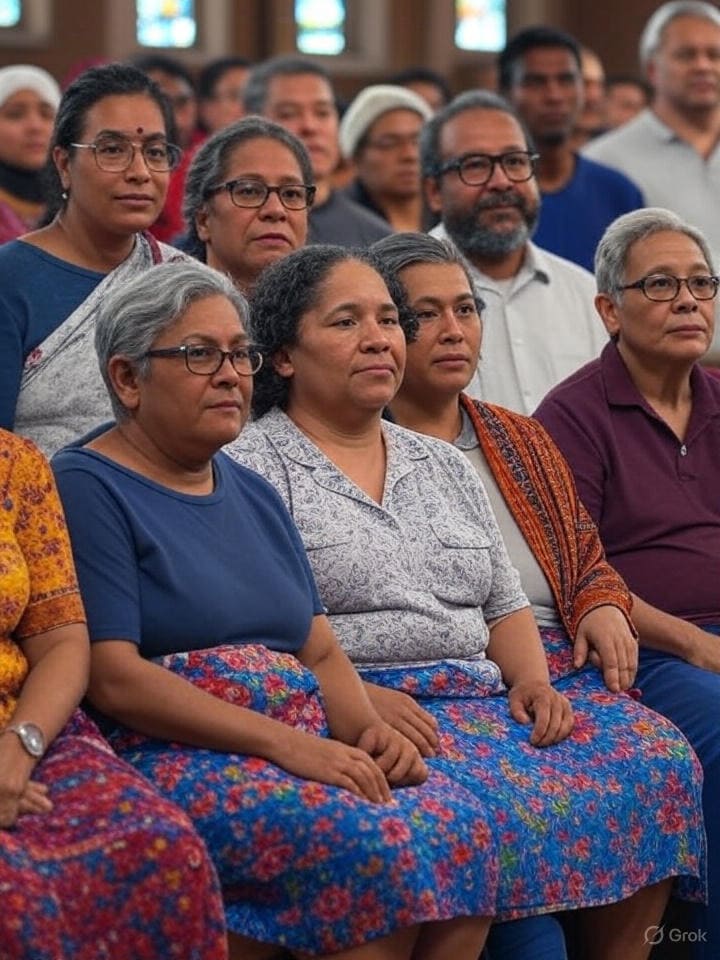 Grounded in spiritual principles, these nonprofits deliver community services while promoting faith and interfaith harmony. They offer charitable aid like food distribution, disaster relief, and counseling through churches, mosques, or temples; conduct missionary work, youth programs, and spiritual retreats; support interfaith dialogue to reduce religious conflicts; provide education and healthcare in underserved areas; and advocate for moral issues aligned with their beliefs, such as peace, justice, and environmental stewardship.
Grounded in spiritual principles, these nonprofits deliver community services while promoting faith and interfaith harmony. They offer charitable aid like food distribution, disaster relief, and counseling through churches, mosques, or temples; conduct missionary work, youth programs, and spiritual retreats; support interfaith dialogue to reduce religious conflicts; provide education and healthcare in underserved areas; and advocate for moral issues aligned with their beliefs, such as peace, justice, and environmental stewardship.
Donate Now
 Working globally, these organizations address poverty, inequality, and underdevelopment in low- and middle-income countries. Efforts include infrastructure projects like building schools, hospitals, and water systems; economic programs such as agricultural training and market access; health initiatives for disease control and sanitation; empowerment of local communities through capacity building and gender programs; and advocacy for fair trade, debt relief, and sustainable development goals to foster self-reliance and global equity.
Working globally, these organizations address poverty, inequality, and underdevelopment in low- and middle-income countries. Efforts include infrastructure projects like building schools, hospitals, and water systems; economic programs such as agricultural training and market access; health initiatives for disease control and sanitation; empowerment of local communities through capacity building and gender programs; and advocacy for fair trade, debt relief, and sustainable development goals to foster self-reliance and global equity.
Donate Now
Who We've Helped
Prior to starting Unicus Alliance, its Founder, has proudly supported a diverse array of non-profit organizations over the years, contributing to their missions through various forms of assistance. Below is a list of some of these non-profits, each dedicated to impactful causes ranging from marine conservation and veteran support to community welfare and youth empowerment, reflecting the Alliance’s commitment to fostering positive change across communities and ecosystems.
 A peer-reviewed, open-access journal publishing original research, reviews, and reports on animal behavior and cognition, including empirical studies, replication reports, and theoretical articles to advance scientific understanding.
A peer-reviewed, open-access journal publishing original research, reviews, and reports on animal behavior and cognition, including empirical studies, replication reports, and theoretical articles to advance scientific understanding.
Donate Now
 A Pontiac-based human services agency that feeds, clothes, educates, and empowers low-income families and children through meal programs, after-school enrichment, clothing closets, and tools for economic self-sufficiency and personal growth.
A Pontiac-based human services agency that feeds, clothes, educates, and empowers low-income families and children through meal programs, after-school enrichment, clothing closets, and tools for economic self-sufficiency and personal growth.
Donate Now
 A compassionate non-profit providing free, high-quality caskets and memorial services to families who have lost a child, easing financial and emotional burdens during grief and honoring young lives with dignity.
A compassionate non-profit providing free, high-quality caskets and memorial services to families who have lost a child, easing financial and emotional burdens during grief and honoring young lives with dignity.
Donate Now
 An award-winning early childhood education center offering nurturing, play-based preschool programs that promote physical, social, emotional, and cognitive development for young children, with a focus on exploration and family involvement.
An award-winning early childhood education center offering nurturing, play-based preschool programs that promote physical, social, emotional, and cognitive development for young children, with a focus on exploration and family involvement.
Donate Now
 A Florida Keys non-profit committed to marine mammal rescue, rehabilitation, and ethical education through dolphin encounters, research, and a planned whale hospital, supporting global conservation via proceeds from interactive programs.
A Florida Keys non-profit committed to marine mammal rescue, rehabilitation, and ethical education through dolphin encounters, research, and a planned whale hospital, supporting global conservation via proceeds from interactive programs.
Donate Now
 A network coordinating marine mammal strandings, rescues, rehabilitations, and necropsies in the Florida Keys, partnering with NOAA and local organizations to ensure rapid response and care for dolphins, whales, and other cetaceans.
A network coordinating marine mammal strandings, rescues, rehabilitations, and necropsies in the Florida Keys, partnering with NOAA and local organizations to ensure rapid response and care for dolphins, whales, and other cetaceans.
Donate Now
 A non-profit building and donating specially adapted, mortgage-free homes to severely injured post-9/11 veterans, enabling independent living with features tailored to their physical disabilities and needs.
A non-profit building and donating specially adapted, mortgage-free homes to severely injured post-9/11 veterans, enabling independent living with features tailored to their physical disabilities and needs.
Donate Now
 A Florida Keys relief organization formed post-Hurricane Irma, aiding recovery, disaster preparedness, and resource distribution through volunteer coordination and civic partnerships to foster community resilience.
A Florida Keys relief organization formed post-Hurricane Irma, aiding recovery, disaster preparedness, and resource distribution through volunteer coordination and civic partnerships to foster community resilience.
Donate Now
 A Pontiac, Michigan, non-profit providing emergency food, clothing, youth programs, affordable housing, and volunteer opportunities to support low-income families and promote self-sufficiency in the community.
A Pontiac, Michigan, non-profit providing emergency food, clothing, youth programs, affordable housing, and volunteer opportunities to support low-income families and promote self-sufficiency in the community.
Donate Now
 A non-profit dedicated to marine mammal conservation, research, and education, conducting field studies, rescues, and public outreach to protect species like dolphins and whales in the Florida Keys and beyond.
A non-profit dedicated to marine mammal conservation, research, and education, conducting field studies, rescues, and public outreach to protect species like dolphins and whales in the Florida Keys and beyond.
Donate Now
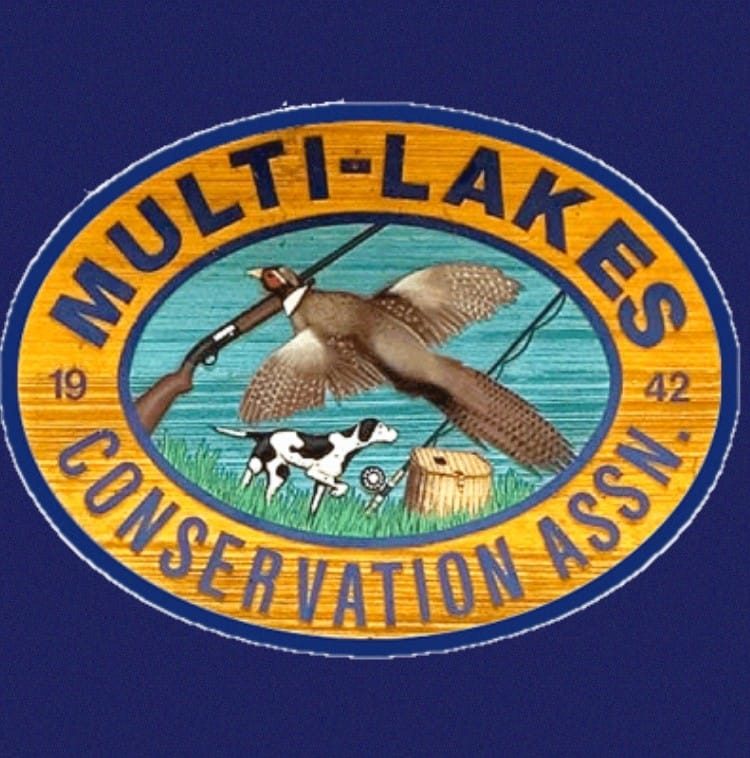 A Michigan-based conservation club promoting outdoor education and recreation through shooting sports, archery, fishing, youth programs, and environmental stewardship to foster appreciation for nature and safe outdoor enjoyment.
A Michigan-based conservation club promoting outdoor education and recreation through shooting sports, archery, fishing, youth programs, and environmental stewardship to foster appreciation for nature and safe outdoor enjoyment.
Donate Now
 A network of allied churches under the Unicus Alliance, uniting diverse congregations for collaborative worship, community outreach, and spiritual growth, emphasizing shared faith values and mutual support in ministry efforts.
A network of allied churches under the Unicus Alliance, uniting diverse congregations for collaborative worship, community outreach, and spiritual growth, emphasizing shared faith values and mutual support in ministry efforts.
Donate Now
 Kids for the Oceans, a youth-led non-profit raising awareness about marine ecosystem threats through educational initiatives, beach cleanups, and hands-on conservation projects to empower children in protecting ocean life and biodiversity.
Kids for the Oceans, a youth-led non-profit raising awareness about marine ecosystem threats through educational initiatives, beach cleanups, and hands-on conservation projects to empower children in protecting ocean life and biodiversity.
Donate Now
 Now Grace Centers of Hope, a Christian non-profit in Pontiac, Michigan, offering homeless shelters, addiction recovery programs, life skills training, and family support services to men, women, and children since 1942.
Now Grace Centers of Hope, a Christian non-profit in Pontiac, Michigan, offering homeless shelters, addiction recovery programs, life skills training, and family support services to men, women, and children since 1942.
Donate Now
 Coral Restoration Foundation, a non-profit focused on large-scale coral reef restoration through cultivation, outplanting, and monitoring of genetically diverse corals, primarily in Florida, to combat climate threats and enhance marine ecosystems.
Coral Restoration Foundation, a non-profit focused on large-scale coral reef restoration through cultivation, outplanting, and monitoring of genetically diverse corals, primarily in Florida, to combat climate threats and enhance marine ecosystems.
Donate Now

Donate Now
